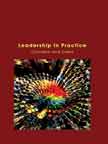Self Employed Women's Association (SEWA) - Empowering Women in India




|
|
ICMR HOME | Case Studies Collection
Case Details:
Case Code : LDEN029
Case Length : 09 Pages
Period : 1970-2004
Pub Date : 2004
Teaching Note : Available
Organization : Self Employed Women's Association
Industry : Service
Countries : India
To download Self Employed Women's Association (SEWA) - Empowering Women in
India case study
(Case Code: LDEN029) click on the button below, and select the case from the list of available cases:

Price:
For delivery in electronic format: Rs. 300;
For delivery through courier (within India): Rs. 300 + Rs. 25 for Shipping & Handling Charges
»
Leadership and Entrepreneurship Case Studies
» Case Studies Collection
» ICMR HOME
» Short Case Studies
» View Detailed Pricing Info
» How To Order This Case
» Business Case Studies
» Area Specific Case Studies
» Industry Wise Case Studies
» Company Wise Case Studies
Please note:
This case study was compiled from published sources, and is intended to be used as a basis for class discussion. It is not intended to illustrate either effective or ineffective handling of a management situation. Nor is it a primary information source.
|
|
<< Previous
"From a miserable passive acceptance of all the
injustices, SEWA women, by organizing themselves, have attained the courage to
stand up and fight, the ability to think, act, react, manage and lead.
Self-reliance is what they ultimately want. There is no development without
self-reliance. But there is no route to self-reliance except by organization."
- Ela Bhatt, Founder of SEWA.1
Empowering Women
|
In August 2003, Reema Nanavaty, director of the Self Employed Women's
Association (SEWA) signed an agreement with the Taj Residency Ummed2
(Taj) in Ahmedabad,3 India, to open an
outlet of SEWA products within the premises of the Taj. This agreement would
enable SEWA to target foreign tourists coming to India, in keeping with its
strategy of targeting international markets for its textile and handicrafts
products. Since its inception in the early 1970s, SEWA has been working towards
organizing and empowering poor, self-employed women workers in rural and urban
areas in India.
SEWA has organized self-employed women from different trades and helped them
get regular employment, easy access to credit, childcare, healthcare
facilities, etc.
|
|
SEWA was more than an organization; it was a movement - a
combination of labor, women and co-operative movements. According to Ela
Bhatt, founder of SEWA, "It took ten years to build an organization and
twenty years to build a movement."4
SEWA was affiliated to HomeNet - the international network for home-based
workers - and Streetnet International - an alliance of vendors & hawkers.
These affiliations helped SEWA extend its movement to the international
level. SEWA also received grants from the Government of India (GoI), The
United Nations Children's Fund (UNICEF)5,
the Ford Foundation6, and the
International Labor Organization7.
|
|
Formation of SEWA
In 1971, a few women handcart pullers approached Ela Bhatt (Bhatt), head of the
Women's wing of the Textile Labor Association (TLA), in Ahmedabad, India, with
problems like low and erratic wages, poor working conditions, etc. Bhatt was
aware that most of the women did petty jobs, working as garment makers,
vegetable vendors, handcart pullers, milkmaids, hawkers, etc., to supplement
their family income. About 97% of the women lived in slums and 93% were
illiterate. Bhatt soon realized that women employed in the informal8
sector were unorganized, unprotected, economically weak and had no
bargaining power... |
Self Employed Women's Association (SEWA) - Next Page>>
|
|



